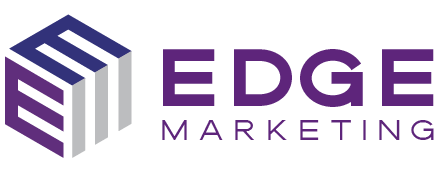From Page One to Answer One: Winning Visibility in the AI Era
By Mary Obregon
If you’re still thinking of “search visibility” as landing a top spot in Google’s traditional results, you’re overlooking the revolution happening right under your nose. At Edge Marketing, we see the rules (and opportunities) changing faster than ever, driven largely by the rise of AI-powered search engines and chatbots. For your brand or business it’s not just about being “found” anymore; it’s about becoming the authority: the cited, quoted and trusted resource at the core of every answer, both for humans and machines.
From First Page to First Answer
For years, marketers and professional service leaders put significant effort into achieving that elusive “page one” ranking in a basic Google search. But as my colleague Amy Juers and I recently discussed on the Edge Unscripted podcast, today’s searcher experience in legal, accounting, tech and beyond looks completely different.
Platforms like ChatGPT, Google’s new Search Generative Experience and Gemini now deliver direct, AI-powered answers to users, often without requiring a single click. According to recent data, a staggering 65% of searches now end without users ever visiting a website. Instead, people want clear, immediate answers; we all do—myself included!
This shift is especially crucial for those in thought leadership-driven sectors. If your expertise isn’t featured or cited in these AI-powered answers, your brand risks being invisible to your ideal audience. The new reality is that being the top answer, cited as the authority, has replaced the vanity of traditional search ranking.
What Does “Being Cited” Mean in Practice?
Being cited doesn’t just mean showing up somewhere in a list. It means your insights, your data, your opinions are the answers AI applies to respond to users’ questions. Imagine someone researching best practices for firm IT workflows and ChatGPT lists your white paper or quotes your CEO’s expert commentary. As I shared on the podcast, it’s becoming increasingly common for a prospective client or journalist to say, “I found you because you were referenced in an AI-generated answer.” That’s business impact you can measure.
Enter Generative Engine Optimization (GEO)
How do you get there? Traditional SEO isn’t obsolete by any means. Google ranking still matters, but it now serves as just one piece of the puzzle. An emerging strategy we call generative engine optimization (GEO) is quickly becoming a must-have: structuring, distributing and amplifying your expertise specifically so that generative AI engines discover and cite your brand. While still evolving, GEO is already proving essential for visibility in AI-powered searches.
Here’s where to focus your efforts:
-
Make Your Content AI-Ready
GEO starts with making your content easy for AI models to interpret and surface. This means using structured Q&A formats, with direct and concise answers to real client questions, and creating content that can be quickly indexed, summarized and surfaced. On the Edge Marketing website, for example, we’ve added detailed FAQs targeting the exact pain points and queries of our buyers. Not only does this help humans navigate, but it also makes it much easier for AI engines to parse and reference our expertise.
-
Get Cited Beyond Your Own Platform
It’s not enough to publish great content on your own website. AI platforms value third-party validation. You should pursue bylined articles, guest podcast spots, PR placements and speaking opportunities in industry publications and events. Trade journals, technology podcasts and expert commentary pieces can all become feeder content for AI engines. Even a single bylined article in a respected trade publication may be referenced dozens of times in generative AI responses.
-
Optimize Technically for AI
Technical SEO isn’t going away; it’s evolving. Clear schema markup, explanatory meta descriptions and well-structured headers help both search bots and human readers quickly recognize the expertise in your content. Make sure every blog, white paper or landing page is as “bot-friendly” as it is user-friendly.
-
Repurpose and Tag All Content Types
Remember: AI engines analyze not just written words, but audio and video content as well. Ensure your podcasts, webinars and panel discussions are transcribed and properly tagged with relevant keywords and names. The more comprehensive your content footprint is, the more opportunities there are for AI to find and trust what you’re saying.
-
Measure What Really Matters
Finally, it’s important to track not just clicks, but citations—where your work is being directly referenced by AI and media. While robust software tools are still catching up (and we at Edge are constantly researching the best solutions), you can start by simply asking new leads how they found you, monitoring PR pickup and experimenting with analytics tools that highlight AI-driven traffic sources.
PR Is Now Every Touchpoint
At Edge, we treat every blog post, interview, podcast and announcement as PR—not just for search engines, but for people too. The goal is to optimize every touchpoint for human trust and AI discoverability alike. Stay persistent: keep creating, optimizing and sharing your expertise wherever decisions are made, whether by humans or by the AI platforms influencing the next wave of business discovery.
Are you ready to be found and cited, not just by Google but by the wave of AI-powered engines shaping tomorrow’s marketplace? Start with these steps. For deeper insights, download our free GEO Tips and Guides PDF at edgemarketinginc.com.
Mary Obregon is a marketing strategist at Edge Marketing. For more AI-driven strategies, subscribe to the Edge newsletter or tune in to the Edge Unscripted podcast.

